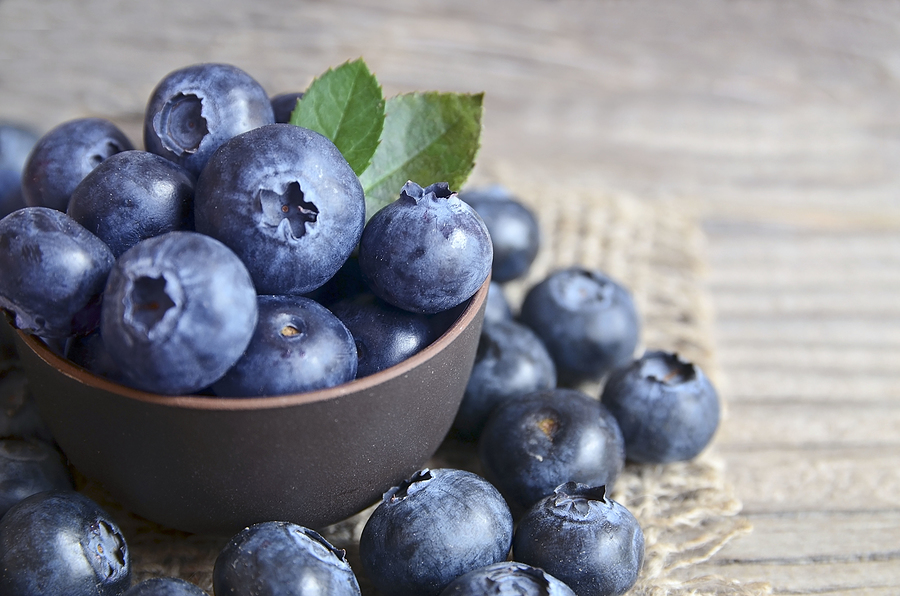Several recent studies have shown how blueberry polyphenols reduce heart disease risk factors. Specifically these polyphenols inhibit the formation of foam cells that lead to atherosclerosis.
Atherosclerosis is the buildup of fatty deposits called plaque that narrows the arterial wall. The vast majority of heart disease is associated with this process. In fact, here is a simple overview of what happens:
-
The process starts when monocytes (a type of white blood cell) adheres to the endothelial cells that line your arterial walls.
-
These monocytes invade this one cell thick lining and develop into macrophages.
-
Macrophages are used by your body to engulf oxidized LDL cholesterol.
-
The accumulation of oxidized LDL particles in the macrophages form foam cells.
-
Foam cells then stimulate the body to produce smooth muscle cells and excess connective tissue, which leads to the narrowing of the inside of the artery or atherosclerosis.
If these foam cells are stable, then the risk for a stroke or heart attack is lower. But if these foam cells are inflamed, then the risk for a heart attack or stroke is significantly increased.
Given the above progression, there are two key points to stop the formation of plaque. One is to prevent the oxidation of LDL cholesterol. This is where a diet high in antioxidants can play a major role.
And blueberries are high in antioxidants.
The second area is were the polyphenols come in. Blueberries are rich in two types of polyphenols:
-
Anthcyanins
-
Anthocyanidins
These polyphenols interfere with the adhesion of monocytes to the endothelial cells. This then reduces the potential for foam cells. And without foam cells, then the oxidized LDL particles cannot accumulated.
In a recent human study, researches evaluated the effects blueberries had on patients with metabolic syndrome. Metabolic syndrome usually has the following health issues:
-
High Blood Pressure
-
Abdominal Obesity
-
High Blood Sugar
-
Abnormal Lipid Profiles
-
And Oxidative Stress and Inflammation
There were two groups in this study. One group consumed a daily smoothie that contained 22.5 grams of freeze-dried blueberries. This is approximately two cups of fresh blueberries.
The other group consumed a placebo smoothie twice daily.
After six weeks the group with the blueberry supplementation had significantly less inflammatory markers.
This lead to cell culture studies to identify the exact molecular sequence as it related to the endothelial cells. And what they found was that the blueberry polyphenols stimulated what is called the nuclear factor erythroid 2-related factor 2 or Nff2 for short.
Nrf2 is key in activating your body’s genes to increase its defense against oxidative stress.
Because of this researchers are looking for additional ways to upregulate Nrf2 signaling to reduce the oxidative stress that is common to several chronic diseases, like heart disease.
For most of the studies about two cups of fresh blueberries taken on a daily basis provided health benefits. And with summer fast approaching now would be a good time to incorporate blueberries into your daily diet.
And one of the easiest ways to do this is to add frozen blueberries to a daily smoothie.
Blessing Lives Through Nitric Oxide Therapy!
Dan Hammer

Leave a Reply
You must be logged in to post a comment.